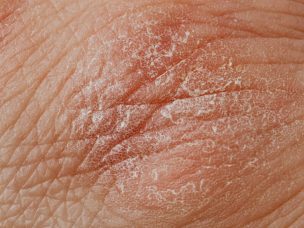Dermatology
Remibrutinib Safety, Tolerability, and Efficacy in Chronic Spontaneous Urticaria
Long-term treatment with remibrutinib shows favorable safety and tolerability and demonstrated robust clinical efficacy in patients with chronic spontaneous urticaria, according to the results of a phase 2b trial. Chronic spontaneous urticaria (CSU) is a condition in which wheals (hives) and/or angioedema occur persistently for longer than 6 weeks, greatly affecting the quality of life...
Role of Different Biomarkers in Chronic Spontaneous Urticaria
Interleukin-9 and apolipoprotein A-IV could serve as new biomarkers for predicting the severity of urticaria, according to the results of a recent observational study. Chronic spontaneous urticaria (CSU) is a condition characterized by the presence of wheals, with or without angioedema, that occur daily or almost daily for more than 6 weeks. Previous studies have...
Efficacy and Safety of Deucravacitinib in Psoriasis Treatment
A review of clinical trials finds deucravacitinib to be an effective and safe treatment for moderate-to-severe psoriasis. Psoriasis is a chronic inflammatory skin disease with an estimated prevalence of 2–3% globally. Systemic therapies are often required for moderate-to-severe disease; however, conventional systemic therapies have numerous disadvantages or limitations. A literature review published in the Journal...
Safety and Efficacy of Eblasakimab in Moderate-to-Severe Atopic Dermatitis
Eblasakimab is efficacious and well-tolerated for treating adults with moderate-to-severe atopic dermatitis, according to a recent cohort study. Atopic dermatitis (AD) is the most prevalent chronic inflammatory skin disease. Despite advances in systemic therapies for moderate-to-severe AD, therapeutic options remain limited. Eblasakimab is a novel human monoclonal antibody that binds the interleukin (IL)-13 receptor α1...
Psoriasis Severity Assessment Based on Artificial Intelligence
by Deileta Kamhunga An artificial intelligence-based psoriasis severity assessment model may be a promising alternative for dermatologists’ assessments, according to a real-world study. Psoriasis is a chronic, immune-mediated skin disease. The therapeutic management plan for psoriasis is established according to the degree of disease severity. The Psoriasis Area and Severity Index (PASI) is currently the...
Comparison of Candidate Biosimilar CT-P43 to Originator Ustekinumab in Plaque Psoriasis
CT-P43 demonstrated efficacy and safety comparable to originator ustekinumab in treating moderate-to-severe plaque psoriasis in a phase III trial. Plaque psoriasis is a chronic inflammatory disease with an estimated prevalence of ≥1.5% in Australasia, Western and Central Europe, and North America. Ustekinumab is a monoclonal antibody approved for treating moderate-to-severe plaque psoriasis. A randomized, active-controlled,...
Silencing Mast Cells for Urticaria Management
A recent review explores mast cell silencing as a novel therapeutic approach for urticaria. New experimental mast cell silencers like Siglec-targeted monoclonal antibodies (e.g., lirentelimab, AK006) might revolutionize the management of mast cell-dependent diseases, including urticaria. Urticaria is a complex, chronic skin health issue. Its underlying mechanism is not fully understood, posing treatment challenges. Urticaria...
The Gut Microbiome Connection to Persistent Urticaria
Research indicates significant alterations in the gut microbiota of chronic spontaneous urticaria patients, characterized by reduced diversity, lower levels of SCFA-producing bacteria, and increased pathogenic bacteria. Chronic spontaneous urticaria (CSU) is the most common type of chronic urticaria (CU), often lasting for a few years despite intensive medical treatment. Moreover, relapse rates for the condition...
Advancing Chronic Urticaria Care: Compound Glycyrrhizin and Antihistamine Therapy
A recent systematic review and meta-analysis reveals the promising efficacy and safety of combining compound glycyrrhizin with second-generation non-sedating antihistamines in treating chronic urticaria, offering a potential advancement in dermatological therapy. This innovative approach may redefine chronic urticaria management, providing new options for patients seeking more effective treatments. Compound glycyrrhizin combined with second-generation non-sedating antihistamines...
More Medical News














